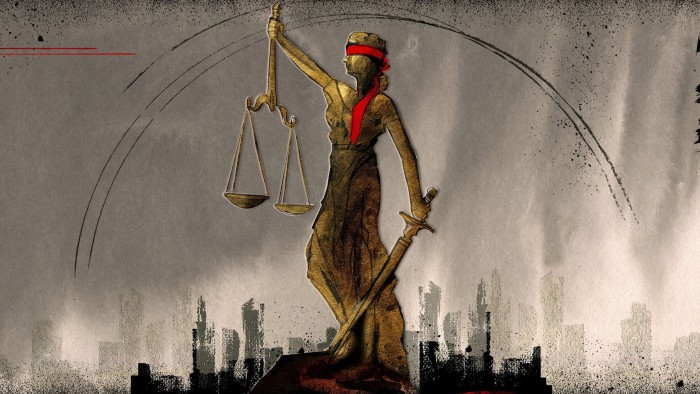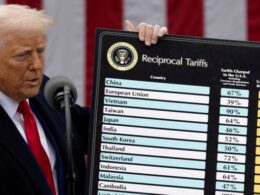Unlock the White House Watch newsletter for free
Your guide to what the 2024 US election means for Washington and the world
The writer is professor of law and economics at Harvard Law School
American business is under attack. Headlines focus on the immediate pain of tariffs, but over the past few weeks, President Donald Trump has launched another assault on a foundation of capitalism: the rule of law. If allowed to go unchecked, and if corporate leaders continue to stand by in silence, Trump’s efforts will scar business long past the next presidential election.
Trump stripped the attorney-general of the shreds of independence left from his first term, with political appointees intervening in prosecutions and firing government lawyers for answering judges’ questions honestly. Then the Department of Justice started investigating dozens of law firms for unspecified crimes. Without notice or court review, the president has personally signed orders taking away rights from half a dozen major law firms that worked in the past for his political rivals. He has directed all government dealings to be ended for any company that relies on those law firms — a type of secondary boycott that in ordinary times would itself be seen as improperly dragging business into the political arena.
What should be even more alarming is that judges who have done nothing other than follow clear precedents and statutes have been threatened with impeachment by the president, and with violence by his followers. These judges face the Hobson’s choice of acquiescing in illegal activity or blocking the administration and being accused of playing politics. Judges following the law are not limited to those appointed by Democratic presidents, but include some appointed by Trump himself.
Several law firms have chosen to fight, while others have caved in. Trump’s list of targets includes those working for large numbers of major US corporations, whether publicly listed or owned by private equity. If the business clients do not step up to defend their own rights to adequate legal representation, they will soon find themselves with stark and costly choices between continuing to do business with the US government, or forgoing their freedom to defend their rights in court with trusted counsel of their choice.
Law enables democracy and protects political freedom. But it is also critical to investment and finance. The benefits of a strong and independent judiciary and legal profession are clear. They include protection of property rights, enforcement of contracts and more vigorous market competition. Without reliable law and an ability for private businesses to defend their rights, investment shrivels. While details of reliable legal systems vary, sine qua nons include prior notice about what the law is, independent judges and autonomous lawyers who can advise and advocate for the public.
Democracy is predictably unpredictable — the ebb and flow of party politics ensures that policies oscillate. The instability of democracy has long been a talking point for the leaders of China, although murky power successions of strongmen in a one-party state have not proved any more stable. In either system, it is law, courts and lawyers that make possible secure investment in the face of that instability. How much harder will it be for US and European businesses to defend their own investments in China if Chinese leaders can point to the US as a model for how law must give way to politics?
Indeed, the lack of a transparent and reliable legal system has been the primary limit on China’s growth. The same is true of Russia, whose rule-of-law deficit caused it to underperform woefully in the economic realm, even before it violated international law and triggered worldwide sanctions by invading Ukraine. A rational investor discounts the nominal value of Russian investments at more than 80 per cent. The risk of confiscation, arbitrary taxation and even imprisonment are as high as they are because Russian courts today, as they were in the Soviet era, are seen as instruments of state, no more reliable or predictable than President Vladimir Putin himself.
What can American business leaders do to prevent the slide into a similar situation in which investment risk blunts growth? At a minimum, they can reach out privately to affected law firms and lawyers and assure them they have their support, and their business. At a maximum, they could intervene in the growing list of pending lawsuits that challenge Trump’s varied attacks on the rule of law. In between, they could join together to reassert the values of well-governed capitalism.
Trump has an enormous agenda — business leaders should begin working now to keep the destruction of the basic conditions for investment off it.
Source link









